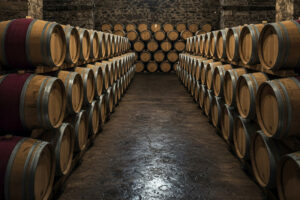Taste crooks that use the images of Made in Italy products, built over time by the Italian farmers, run a 60 billion euros business selling products that are definitely not Italian. A study presented by the Association of Italian Farmers, Coldiretti at the Salone del Gusto, where some of the most improbable products were shown - like white Barbera wine produced in Romania, grated gorgonzola cheese Made in the USA, the Canadian water soluble Barolo and the Swedish water soluble Nebbiolo.
“The fight against piracy and counterfeiting is a priority for the institutions in order to recover economic resources for the country and to create jobs”, said the president of Coldiretti Sergio Marini and he also stressed that “agro-food exports could even triple”.
The loss of economic opportunities and employment - points out Coldiretti – is added to the damage done to the image of local products, especially in emerging markets where fake products are often more common than the real thing and therefore negatively affect consumer expectations. At the top of the list of the most cloned products are Parmigiano Reggiano and Grana Padano cheeses which, for example in the United States in nearly nine out of ten cases are replaced by Parmesan produced in Wisconsin or California. But there are also “clones” of Provolone, Gorgonzola, Pecorino Romano, Asiago or Fontina cheeses as well as our most prestigious prosciuttos from Parma and San Daniele, extra-virgin olive oil and preserves such as San Marzano tomatoes produced in California and sold all over the United States. And recently the miraculous wine kits that promise obtaining in just a few days, the most prestigious Italian wines such as Barolo, Nebbiolo, Lambrusco, Chianti or Montepulciano. In fashion, the poor countries copy the designs whereas for Made in Italy food and wine, imitations proliferate especially in rich countries, with the United States and Australia in the lead, where - according to Coldiretti - there are consumers who have higher incomes and are fascinated by Italian food.
It is a global fight against deception to consumers that causes economic as well as image damage to Italian products on an international level. It is key to seek an international trade agreement in the WTO to protect appellations from imitations, but it is also necessary to clarify at the national and European level - concluded Coldiretti - that all products indicate the origin of food on the label as required by law, unanimously approved by the Italian Parliament at the beginning of the term and until now has never been applied.
Copyright © 2000/2026
Contatti: info@winenews.it
Seguici anche su Twitter: @WineNewsIt
Seguici anche su Facebook: @winenewsit
Questo articolo è tratto dall'archivio di WineNews - Tutti i diritti riservati - Copyright © 2000/2026






































































































































































































